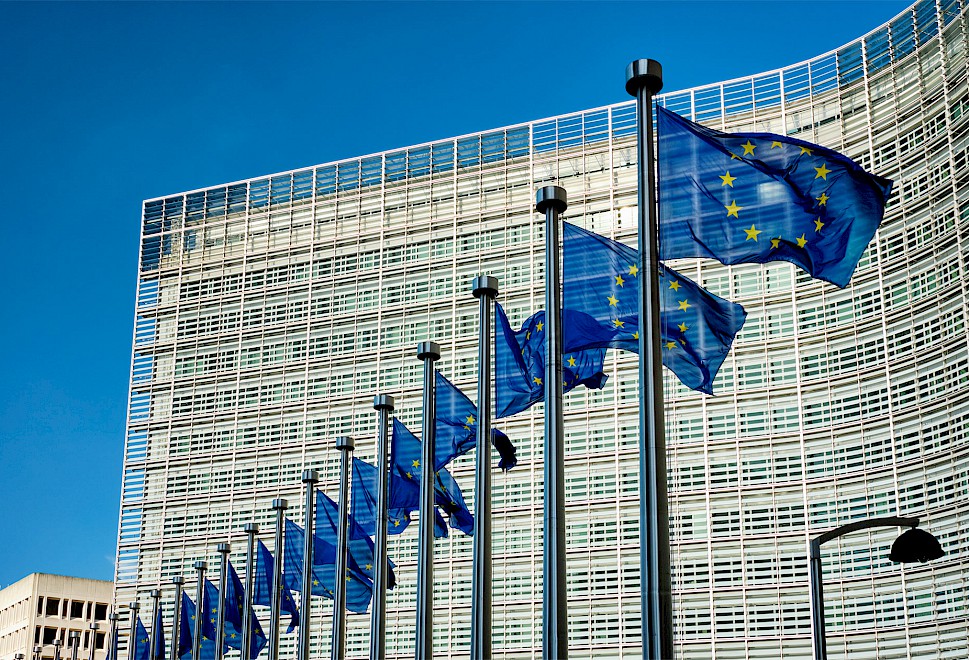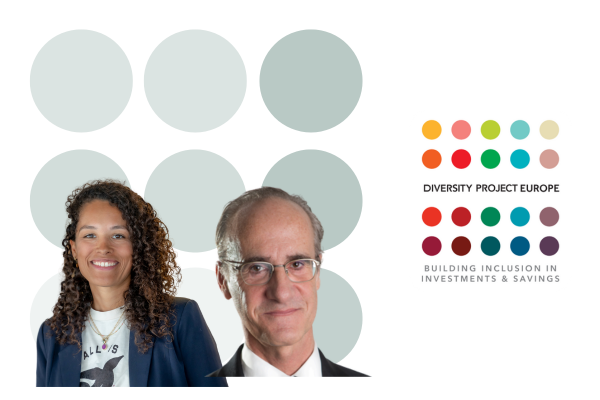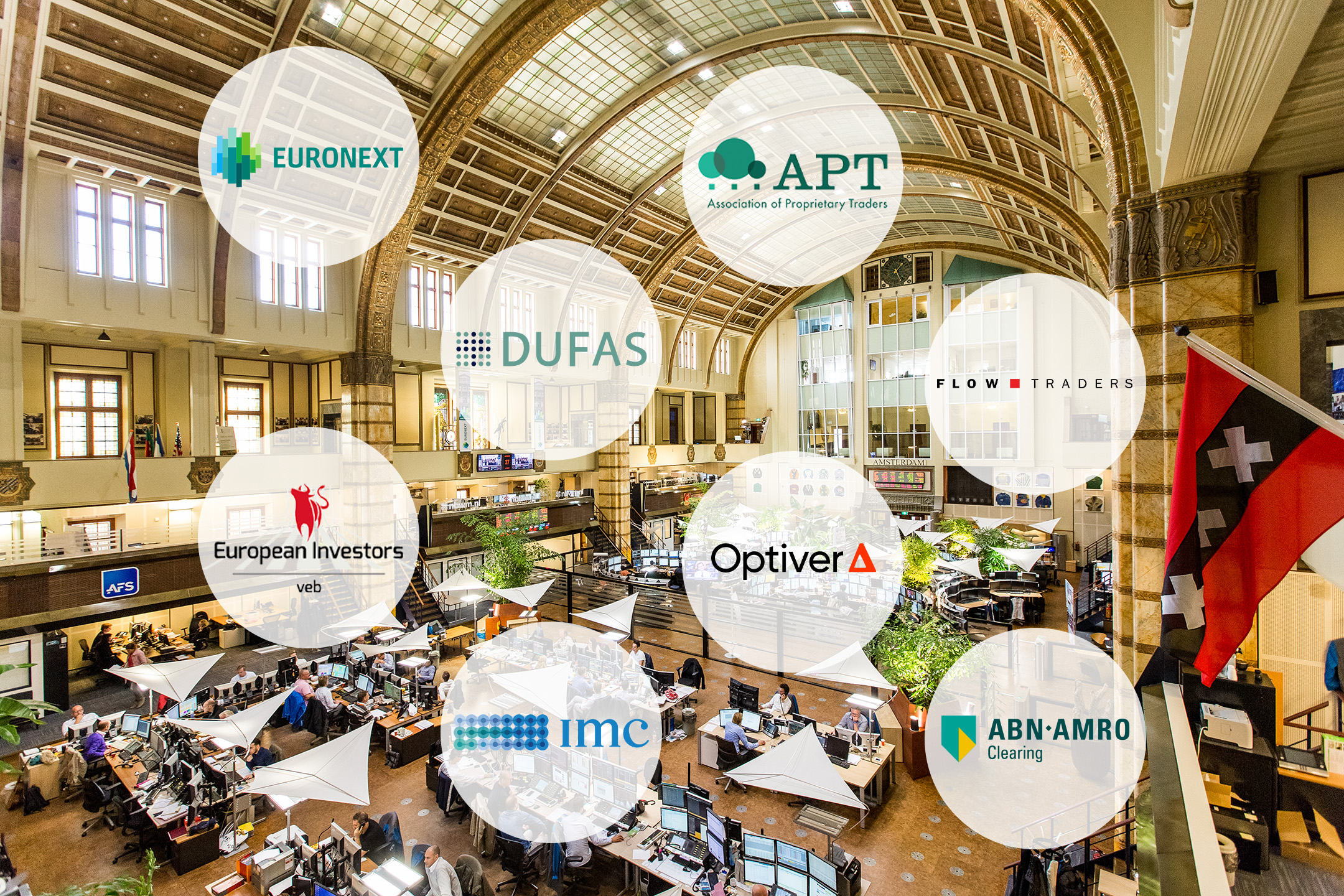
Exclusive to members - In our political update, Pepijn, public affairs NL, and Marlon, public affairs EU, outline the latest developments in The Hague and Brussels.
Brussels
On Sept. 10, Ursula von der Leyen kicked off the new political year with her State of the Union. The emphasis was strongly on geopolitics, strategic autonomy and security - themes that will dominate the European agenda in the coming period. Of particular relevance to our sector were her comments on competitiveness, the internal market and reducing regulatory pressure. In doing so, she outlined the contours for further deepening of capital markets.
But how does that look a year after the Draghi report? On Sept. 16, it was reviewed in Brussels. Draghi himself was critical: the steps taken are insufficient and the backlog has even increased. For the Commission, therefore, every reason to accelerate work on the Savings and Investment Union (SIU).
This theme was also the focus of our discussions at Eurofi, where we joined several DUFAS members in discussions with finance ministries and regulators from other member states. An important example that was often mentioned was the Swedish ISK model. This example shows that simplicity and limited restrictions lead to strong retail participation. The message is clear: do not reinvent the wheel, but build on proven models. Yesterday, the European Commission presented its recommendations to member states around this model, along with a financial literacy strategy. It is now up to member states to take this up.
A second theme at Eurofi was the discussion on centralization of supervision. Everyone sees the added value of convergence, a single rulebook and harmonized reporting. But many of these improvements are already possible within the current model. Therefore, nuance in this debate is essential. By the end of this year, the Commission will come up with proposals to make the supervisory framework more efficient.
We also look forward to the proposal for the SFDR-2 review and a pension package, both scheduled for Nov. 19. A comprehensive market integration package is also expected before the end of the year, of which supervision is a component. There are even rumors circulating about further regulatory harmonization, for example by turning the AIFMD into a regulation.
Finally, negotiations on FIDA and RIS are continuing steadily. Under the Danish presidency, there seems to be agreement on key elements before the end of this year, whether they will finalize the files remains to be seen.
The Hague
The elections are coming up. Therefore, the House will go on election recess on October 3. However, the elections do not bring about a standstill. In the month that the House was gathered to debate (the summer recess ended September 1), the committee debate on financial markets took place, the Million Note was presented during Prinsjesdag, the group chairmen clashed with each other during the General Political Contemplations and the financial spokesmen will debate each other this week during the General Financial Contemplations. In short, plenty of developments in The Hague.
On September 11, the Financial Markets Committee debate took place. In the run-up to this debate, together with NVB, Holland Quaestor, APT, Verbond van Verzekeraars, Adfiz and VBIN, we wrote a memo on the SEO-evaluation Wbft 2019 on supervisory costs. We also approached spokespersons individually about, among other things, a fiscally attractive investment account.
Where last year's committee debate was dominated by savings rates, cash money and anti-money laundering, this time the focus was on supervisory costs, the establishment climate and investments. During the debate, Minister Heinen acknowledged that supervision costs are too high and he is in talks with the AFM and DNB about this. In addition to concrete actions to reduce costs, the minister also promised to investigate how supervisors can work more efficiently and to have an international comparison of supervisory costs carried out with attention to the establishment climate.
The CDA asked questions about a tax-deferred investment account and education about investing, while the VVD addressed national headlines and how to reduce them. Another interesting thing to mention about national headlines, on Sept. 8 an inventory of national headlines for the financial sector was published, a file we at DUFAS have long championed.
The throne speech on Budget Day began with the outgoing cabinet reaching out to the House. With only the VVD and BBB remaining as ruling parties, accounting for 32 seats, there is little new policy to be expected. This can also be seen in the Budget Memorandum, where no major policy changes have been announced. What does stand out is the intention to merge Invest-NL and Invest International into a single national investment institution. There is also a lot of focus on reducing regulatory burden. Both the Ministry of Finance and Economic Affairs have the ambition to reduce regulations. The budget of Finance repeats what the minister already said during the committee debate on financial markets, a critical look at supervision costs.
Also fiscally, there are no major changes apparent from the Tax Plan 2026 (the plan will be debated after the elections). We covered these in detail with Loyens & Loeff at the Fund Update Event. Starting with increasing the flat rate other assets by 1.78%-point in Box 3, which was already known earlier. It also lowers the tax-free assets to €51,396. There are also a number of adjustments in Box 2, mainly aimed at increasing the tax for lucrative interest.
It is also proposed to postpone the proposed phasing out of the green investment exemption, instead of 2027 it will go into effect January 1, 2028. Important to note here is that the exempt amount does decrease tremendously, to €200. From the Chamber, especially D66 is putting a lot of pressure on the cabinet to keep the scheme, so we are curious to see what follows from negotiations and the discussion of the Tax Plan. The ETK-scheme for expats will be moderated slightly, although this does not involve huge amounts (€21 mln). In addition, it is proposed to continue the temporary transitional law fund on joint account, as it applied up to and including 2024, to 2025 and 2026. On this file, DUFAS has joined forces with the Pension Federation and IVBN, among others, to see if we can take further steps.
The General Political Considerations were clearly an election debate. Relatively few questions for the outgoing administration and many clashes between the group chairmen. A number of motions relevant to DUFAS members were passed, which I briefly list here:
- Eerdmans motion to veto EU climate target 2040.
- The motion Yesilgöz and Bontenbal to identify 500 rules to eliminate.
- Wilders' motion to retain mortgage interest deduction.
Finally, a brief preview. This week the General Financial Considerations are on the agenda. With the elections approaching, it is to be expected that many parties will submit motions to satisfy their voters. We will therefore follow the debate with attention. As of Friday, the election recess begins. Currently, the PVV is the largest in the polls, followed by GL-PvdA and the CDA. The VVD has dropped tremendously in the polls as the fourth party, while JA21 is on the rise and is now in fifth place, followed by a bevy of other parties. For now, the Netherlands seems divided. But a lot can still happen in the last month until the elections and in the end there is only one real poll, the elections on October 29.


